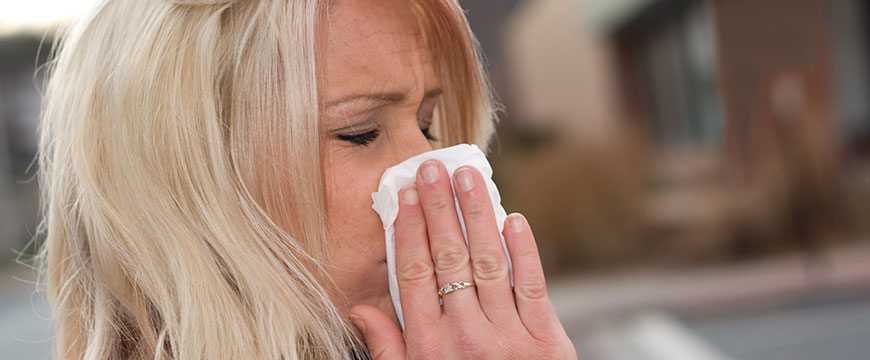
Choosing an allergist can be stressful, especially when your health and comfort are at risk. However, by keeping a few key things in mind, you can be confident that you have found the best allergist for your needs. In this post, we’ll discuss tactics for choosing an allergist to assist you make an informed decision.
Get suggestions
Start your search with a reference list from your primary care physician or specialist. Also, seek referrals from family, friends, and other healthcare professionals. Take the time to look over the allergists’ credentials and experience.
As you narrow down your selection, contact each allergist’s office and request a consultation appointment to meet with and interview the doctor.
Check the allergist credentials.
Verifying an allergist-immunologist’s credentials is an important step in choosing the proper specialist. Certification signifies that the doctor has received the necessary training, knowledge, and expertise to provide allergy and immunology care.
Also, ensure that there are no malpractice claims or disciplinary actions against the allergist. Thankfully, there are state websites that provide information about the allergist-immunologist’s medical school, training hospital, credentials, malpractice and disciplinary histories.
Consider the experience of the allergist.
When dealing with a suspected allergy or immune system disease, experience is important. The more experience an allergist-immunologist has with a specific ailment or procedure, the better your outcome is likely to be.
You should inquire how many people with your specific condition the allergist-immunologist has handled.
If you know you need a specific procedure, ask how many times the doctor has performed it and what the complication rates are—both the complications the doctor has experienced and your own risk.
Consider the gender of the doctor.
You must feel at ease with the gender of your allergist-immunologist because you will be discussing personal information openly. You should question the allergist about his or her most recent training and experience with your illness and gender.
Because gender matters in some areas of care, allergists are becoming increasingly specialized in treating women and men differently. Treatment centers that specialize in gender-specific care are also becoming more common.
Pay attention to convenience and accessibility.
When choosing an allergist, consider the location of the allergist’s office. Choose an allergist whose office is convenient to your home or workplace. This will give you convenient access to allergy treatments and other services.
You also should evaluate the office hours and select an allergy doctor that has flexible working hours that fit your schedule.
Understand the services that the doctor provides.
You should take time to understand the services provided by an allergist, particularly if you require immunotherapy in addition to your allergy medications.
You should choose an allergist who offers a wide range of services to ensure that you obtain quality care for many diseases, such as asthma, skin allergies, and food allergies, all in one location.
Also, find out whether the allergy doctor provides modern therapies such as immunotherapy.
As a rule of thumb, you should work with a doctor who provides the services of the condition that you suffer from.
Find out if the allergist accepts insurance.
Allergy therapy doesn’t come cheap, so you should be cautious about the costs involved. Choose an allergy doctor who takes your insurance. This way, you will save money on allergy treatment and services.
You can also call your insurance carrier and request a list of allergists in your network, from which you can choose one.
Evaluate the doctor’s communication style.
Choose an allergist with whom you feel comfortable communicating and who will meet your information needs. When you initially visit with the allergist, ask a question and see how he or she replies.
Does he or she encourage your inquiries and respond in ways you can understand? Find an allergist who is interested in getting to know you, will explore your treatment options, and will respect your decision-making process.
You should be cautious of a doctor who sees you just like a dollar sign.
Take time to read patient reviews.
To learn about the reputation of the allergist you’re considering, browse online patient reviews. You can also go to the doctor’s website and see what other patients have said about them.
These reviews will enlighten you about how the allergy doctor conducts medicine and how the practice runs. You can also learn how much patients trust the allergist.
Of course, you should work with a doctor with a great reputation. The last thing you want is an attorney that you can’t trust.
Find out if the doctor offers telehealth services.
Telehealth refers to the ability of healthcare provider to diagnose and treat their patients using telecommunications technologies such as two-way video, smartphones, and email.
You should find out if the doctor offers telehealth services.
While this is the case, you should note that Telehealth does not replace in-person office appointments, but it does allow many patients to make fewer travels to the doctor.
Some illnesses can be handled by reporting symptoms and vital signs from home and scheduling a “virtual visit” with your clinician.
Telehealth can also be utilized for routine follow-ups and minor complaints, making it a useful choice. Check to be sure your health insurance covers telehealth services, and if possible, choose one that offers them.
Schedule an appointment with your preferred allergist
Before deciding on the best allergist for you, you should schedule an appointment and visit with the potential allergy specialist.
During the meeting, ask the allergist any questions or concerns you have, either mentally or in writing. Assess how they respond to your inquiries and whether you feel at ease with the doctor.
This meeting will also give you an overview of the practice, including doctor friendliness, appointment methods, appointment wait times, office setting, and staff conduct.
You should be ultra-observant when interacting with the allergy doctor Germantown MD and only consider working with them only after ascertaining that they tick all the boxes.
Remember that your health is everything, and you want to only work with a professional who cares about you.








